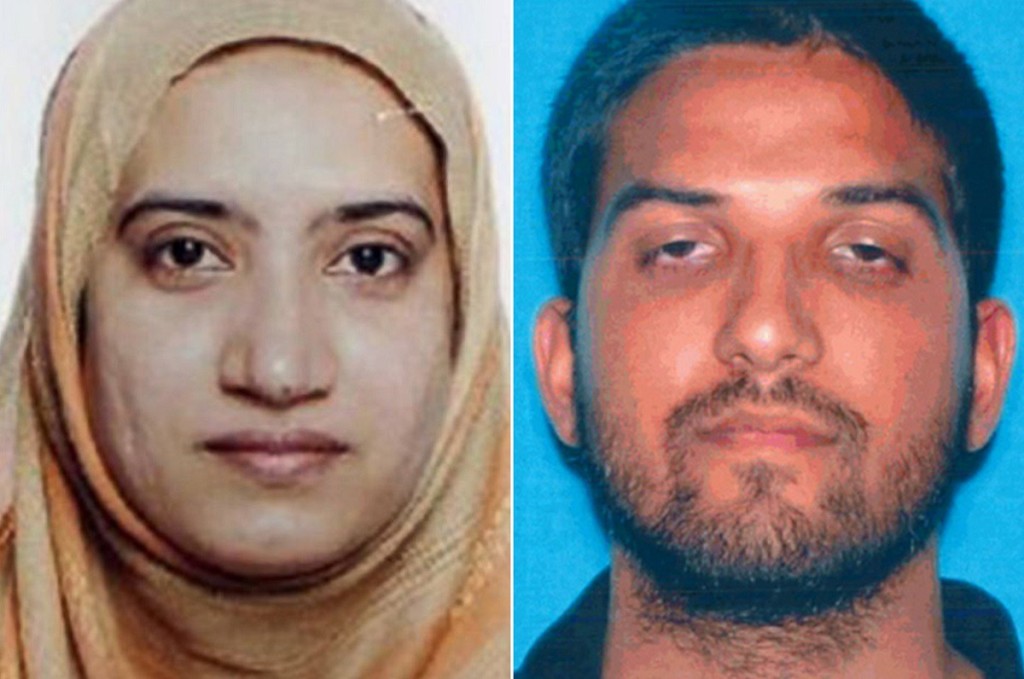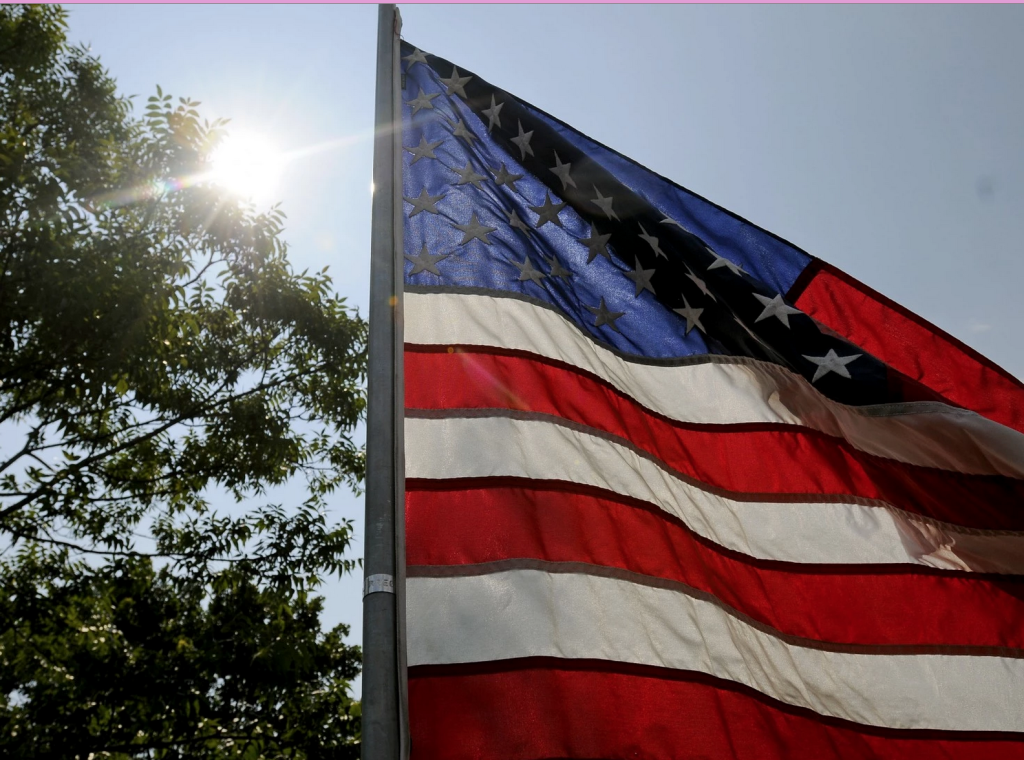Jac VerSteeg: When God tells you it’s OK to kill

There has been a lot of talk about mass shootings and the Second Amendment. Let’s talk a little bit about mass shootings and the First Amendment. We are looking for ways to keep guns out of the hands of violently mentally ill people. Perhaps we also should be looking for ways to keep religion out of the minds of violently mentally ill people. The First Amendment is a sweeping guarantee of rights for individuals, churches and the press: “Congress shall make no law respecting an establishment of religion or prohibiting the free exercise thereof; or abridging the freedom of speech, or of the press; or of the people to peaceably assemble, and to petition the government for a redress of grievances.” There are limits to the free exercise of religion. Courts have intervened, for example, when parents have refused to seek medical treatment for children because they believe God should do the healing. The free exercise of religion obviously does not include the right to kill in God’s name. Yet there are people who believe God has granted them permission to carry out a holy war. Some think they’ve been called by God to kill abortion doctors – and bystanders. Some think they’ve been called by God to kill infidels – and bystanders. That kind of thinking is crazy. But we have seen examples of each in just the past few days with the attacks on Planned Parenthood in Colorado Springs, Colo., by Robert Lewis Dear, and in San Bernardino, Calif., by Tashfeen Malik and Syed Rizwan Farook. For political reasons, the left and right tend to categorize the incidents differently. To the left, the Planned Parenthood shootings are domestic terrorism, egged on by right-wing politicians, and show the need for gun control. The right denies responsibility and chalks it up to the actions of a lone wolf nut (while still preaching that abortion is murder). To the right, the San Bernardino shootings are the work of radicalized pawns of international Islamic extremists. And the attack shows the need not for gun control but for more surveillance and stricter immigration screening. To the left, the fact these murders also look like workplace rage provides another example of the need for gun control. The uniting element is that, in each case, twisted religious beliefs seem to be prime culprits. I am not a psychiatrist or psychologist. So I have no credentials to say who is or isn’t clinically mentally ill. But it is impossible to argue that the actions of Robert Lewis Dear, Tashfeen Malik and Syed Rizwan Farook were the work of mentally stable people. What was it about their mental makeup that made them think God gave them permission to kill? Farook and Malik left behind a baby daughter, for crying out loud. What kind of people do that? If it is going to be hard to keep guns out of the hands of mentally ill people, it is going to be even harder to keep twisted religious ideas out of the minds of people susceptible to those violent notions. But – whether you think terrorists should be considered mentally ill or not – we need to insist that it is just as important to keep guns out of the hands of violent religious extremists as it is to keep guns out of the hands of the violently mentally ill. That means the NRA, and its political enablers, should support better, universal background checks and a ban on assault weapons and high-capacity magazines. Those are not anti-gun measures, those are anti-terror measures. By all means tell us how you’re going to fight ISIS abroad. But also tell us how you’re going to disarm ISIS followers – and there are going to be more of them – at home. And one more thing. Every preacher preaching to his or her congregation and every politician preaching to his or her constituents should explicitly make one thing clear: If you think God is telling you it’s OK to kill, that’s plain crazy. Jac Wilder VerSteeg is a columnist for The South Florida Sun Sentinel, former deputy editorial page editor for The Palm Beach Post and former editor of Context Florida.
Katherine Robertson: Reflections on freedom as Independence Day approaches

Raised to love my country and our flag, and because it’s reserved for time with my family, the Fourth of July is a day that I look forward to from the very first signs of summer. For me, at least, I sense that this year will somewhat bittersweet. When we celebrate America’s independence, we necessarily celebrate freedom — unprecedented and unmatched by any other nation. For the first time in my life, I fear that my own freedom might actually be at stake. As the left tirelessly labels as hateful anyone expressing the slightest disappointment over the Court’s ruling on marriage, any objective constitutional scholar has to admit that this decision goes well beyond the simple act of requiring that marriage licenses be issued to any couple who seeks them. Rather, it tips the scales of justice against one of our nation’s foremost freedoms: the free exercise of religion. As you have likely read and heard numerous times over the weekend, the court has designated the right to marry as one that is “fundamental.” Assigning that status to same-sex marriage places it on equal footing with the free exercise of religion, a freedom enumerated in the First Amendment. Such a designation for same-sex marriage has vast implications, of course, for anyone with a religious objection to it. Precedent dictates that government action may limit a fundamental right if the action promotes a compelling or overriding state interest. Sadly, the court made no effort in last week’s decision to assure the protection of religious liberty in the face of this new state interest in same-sex marriage. The majority writes, “[m]any who deem same-sex marriage to be wrong reach that conclusion based on decent and honorable religious or philosophical premises, and neither they nor their beliefs are disparaged here. But (emphasis mine) when that sincere, personal opposition becomes enacted law and public policy, the necessary consequence is to put the imprimatur of the State itself on an exclusion that soon demeans or stigmatizes those whose own liberty is then denied.” In other words, if exercising your First Amendment rights, including that of religion, is interpreted as demeaning the fundamental right to a same-sex marriage, then your religious right will be deemed inferior. To that end, Justice Samuel Alito did not mince words: “[The decision] will be used to vilify Americans who are unwilling to assent to the new orthodoxy. In the courts of its opinion, the majority compares traditional marriage laws to laws that denied equal treatment for African-Americans and women. The implications of this analogy will be exploited by those who are determined to stamp out every vestige of dissent.” Justice Clarence Thomas similarly opined, “[i]t appears all but inevitable that the two [rights] will come into conflict, particularly as individuals and churches are confronted with demands to participate in and endorse [same-sex marriages]. The majority appears unmoved by that inevitably.” This new, very real threat to our previously taken-for-granted freedoms will have one of two effects on those who revere the First Amendment. Some may decide that the current is just too strong, the left’s talking points too convincing, and that a strict adherence to the Constitution or our own religious beliefs is no longer feasible. On the other hand, and hopefully more likely, others will awaken from complacency. They will choose to be more intentional about who they allow to influence their stances, more confident in their convictions, and more thoughtful in how they go about expressing them. As renowned legal scholar, Judge Robert Bork, wrote in 1993, “[i]n our current culture wars, perhaps the most important of the virtues for conservatives is fortitude — the courage to take stands that are not immediately popular, the courage to ignore the opinion polls. Otherwise, we will never change the polls. That is what true conservatism means, or it means nothing.” This Independence Day, let’s reflect on the fortitude of the generations before us who fought for our freedoms and refuse to be the apathetic generation that lets them slip away. Katherine Robertson is vice president for the Alabama Policy Institute (API), a nonprofit research and education organization dedicated to the preservation of free markets, limited government and strong families.


